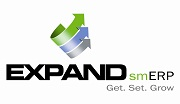“The Internet is ultimately about innovation and integration, but you don’t get the innovation unless you integrate Web technology into the processes by which you run your business.” – Lou Gerstner
Integration is a way of adding slices to find the whole. An Integrated ERP system is a software utilised to optimise business process management. Essentially, a system of interconnected business applications manages your enterprise and automates many back-end business functions such as financial accounting, human resources, and more through function-specific ERP modules. Time and resources are saved and now focus can be shifted on escalating your business.
Different modules that are a must-have in a best-fit ERP system
- Online shopping
- Marketplace integration
- Logistics
- Warehouse and inventory management
- Invoicing
- GST, P/L, Balance sheet
- Lead Management
- Point of sale and retail order
- Schemes and offers
- Export Documentation
- Production and job work
- Service Request
- Mobile Apps
- Third party integrations
Why use an integrated ERP solution?
Where is ERP today?
ERP is used everywhere. ERP software now works in conjunction with a variety of technology trends to encompass every single business need one might think of. The following new and continuing computing trends have an impact on the growth of ERP software:
- Mobile ERP Apps Executives and employees want real-time access to information. Consequently, businesses are embracing mobile ERP apps to gain visibility into real-time reports and dashboards. Users can access data remotely and can respond to customer or business needs instantly. Expand ERP has 5 innovative mobile ERP apps to ease the task of users and produce more efficiency.
- Cloud ERP software The cloud has advanced on all fronts of business as the advantages of the cloud such as, access to data in real-time, scalability and expandable storage, has become a mandate. Expand smERP is a cloud software that allows you to run your business completely online from anywhere.
- Social ERP Social media has been abuzz with how important —or not — it is to add social media to ERP systems. Many have been quick to seize the opportunity and connected social media to their ERP system
Future of ERP software
The business environment in present times has become very complicated. The level of competition is increasing. So are the expectations of customers. This makes it essential that businesses use their resources efficiently. This is possible only through the integration of technology with business operations. These technology trends not only help in reducing the wastage of resources but also help modernize the functions. ERP is essential for a modern-day business.
Do you already have an ERP system in place or are looking to get one for your business? Then you need to know about the trends that will shape the future of ERP in 2021.
- More ERP users will switch to Cloud: The year 2018 saw the movement of several software platforms to the cloud. Till now ERP is lagging with the integration of cloud computing. In the year 2020, expectations are ripe that more ERP users will switch to the cloud. This trend holds great importance for small to medium businesses.
- Businesses must be ready for Updates: With the rising trend of cloud ERP solutions, there are going to be more updates available. This will need the businesses to keep their personnel always ready. They cannot rely on an old-release version for much longer.
- The blockchain is the future: Blockchain has found takers in various enterprise software. It will find its way in the ERP also. The blockchain is one of the most secure platforms for carrying out transactions. Though, it is only in the nascent stages right now. But the future of ERP will feature blockchain.
- Artificial Intelligence is the way to go: Artificial Intelligence services are impacting every facet of business operations. The concept of machine learning is going to revolutionize ERP. It will help businesses achieve high levels of automation. It will replace the need for human resources across various functions.
- Personalization of ERP Solutions: As per the trends,businesses will opt for personalization instead of customization in ERP. It will help them stay up to date with the industry trends. Business users will look for personalization of solutions instead of modifications. It provides the company with a specialized solution at a fraction of the cost.



